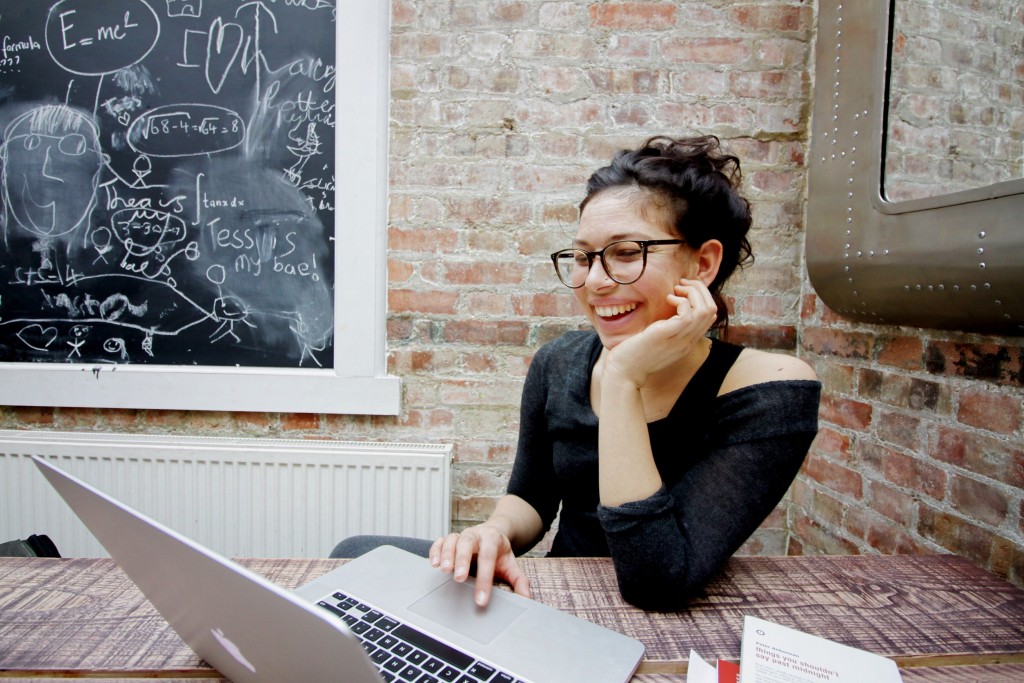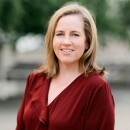Page 57 • (1,275 results in 0.016 seconds)
-

By Sarah Cornell-Maier ‘19. This Fall, Pacific Lutheran University is introducing a new history class that serves as a gateway to the Innovation Studies Program . Hist/Phil 248: Innovation, Ethics, and Society is a team-taught course that combines many different fields of study into one.…
, work in teams, and learn the stages in innovation research. The process is fun for the teachers, as well as the students. “Innovation Studies is by nature interdisciplinary,” said Professor Halvorson, director of the program. “Our students collaborate on problem solving by working and laughing together at the boundaries of art & design, business, economics, history, and other disciplines. The faculty enjoys it as much as the students!” Prof. Michael Schleeter, Chair of the Philosophy department
-

Learning Communities at Ordal One of the highlights of living in Ordal is the opportunity to be part of the Diversity, Justice, and Sustainability (DJS) Communities . These communities are more than just places to live – they’re hubs of connection, growth, and support. Here…
university facilities. Just a short walk from Ingram Hall (the home of Communication, Media & Design Arts), Ordal residents can access academic resources easily. Plus, the proximity to the Hauge Administration building (another building where many classes take place) and Mary Baker Russell Music Center means you’re always close to where the action is. Living on campus isn’t just about having a place to sleep – it’s about immersing yourself in a community that fosters personal and academic growth. At
-
Assessment is effective when it recognizes and accounts for the complexity of the teaching and learning process. Learning is multidimensional, and assessment should be as well.
order to present a more robust illustration of learning, assessment should reflect the levels of knowledge, abilities and educational experiences of students and their learning conditions, as well as demonstrate clear respect for the disciplinary distinctions present on a Liberal Arts Campus.2. Assessment is goal oriented.University mission, disciplinary specificities, course design and students’ professional and personal goals all contribute towards educational goals and outcomes. Having clear
-
About: We’re an early stage startup company developing eco-friendly and bio-renewable surfactant chemicals for consumer products, such as laundry detergents and personal care products. Sironix has invented and developed a new surfactant molecule that will make our consumer products work better and benefit our environment.…
Preferred Qualifications: Working toward degree in chemical engineering, chemistry, or related technical degree – Experience working in a laboratory setting – Experience/coursework in chemistry, catalysis, surfactant/colloid science and/or reactor design – Familiarity with analytical techniques such as GC-FID, chemical catalysis, and/or organic chemistry – Detail-oriented scientist with the ability to take on the challenges of R&D For more information and to apply visit: https
-
Research in Interdisciplinary STEM Education (RISE) is a 9-week residential summer research experience for undergraduate students in chemistry, education, life sciences, mathematics, or physics. Participants will join interdisciplinary teams mentored by faculty to investigate STEM learning across formal and informal environments with a focus on understanding issues related…
, travel awards for students with financial need, on-campus housing provided free-of-charge Bridging the Gap: Innovative curricular design for increasing success in undergraduate chemistry General chemistry is a required course for most STEM majors. As such, it is sometimes referred to as a “gateway course”; success in general chemistry is required for students to proceed in their major. Dr. Buckley is passionate about student success and has created a novel preparatory course for students who do not
-
Following their participation in an Inclusive Pedagogy Seminar, faculty will be eligible to be part of an Inclusive Curriculum Workshop.
-funded project developed by Dr. Catherine Orr at Beloit College, and the resources from this project are used with permission. These efforts are part of an initiative to institutionalize on-going faculty development opportunities, create a rich and sustainable community of practice, and design activities that better reflect evidence-based practices and are more easily assessable. Inclusive Curriculum Workshop Alumni2022 Cohort Adela Ramos, Department of English, and Environmental Studies Program
-

Interim Chair, Philosophy | Department of Philosophy | byaden@plu.edu | 253-535-7283 | I am a proud native of Tacoma and first generation college student that began my formal second language study in high school.
Representation and Processing: Theory and Practice Chapters The Acquisition Environment for Instructed L2 Learners: Implementing Hybrid and Online Language Courses (Multilingual Matters 2019) : View Book Chapter in IALLT’s Language Center Handbook Chapters Supporting the LRC Mission through Collaborative Partnerships Across Campus and Beyond (IALLT 2018) Chapter in IALLT's From Language Lab to Language Center and Beyond: The Past, Present, and Future of Language Center Design Chapters Envisioning New Spaces
Area of Emphasis/Expertise -
Dentists are responsible for the oral health care of their patients. Dentists diagnose and treat problems with patients’ teeth, gums, and related parts of the mouth.
remove teeth, and fit, design, and install dental appliances like implants or dentures. Providing dental care also involves taking x-rays, applying anesthetics, and writing prescriptions. Dentists may practice general dentistry or choose a specialty like oral surgery, orthodontics, pediatric dentistry, or public health. There are a number of great reasons to become a dentist. Here are 10 of them: Service to Others: Help people maintain and improve their oral health, quality of life and appearance
-
Dentists are responsible for the oral health care of their patients. Dentists diagnose and treat problems with patients’ teeth, gums, and related parts of the mouth.
remove teeth, and fit, design, and install dental appliances like implants or dentures. Providing dental care also involves taking x-rays, applying anesthetics, and writing prescriptions. Dentists may practice general dentistry or choose a specialty like oral surgery, orthodontics, pediatric dentistry, or public health. There are a number of great reasons to become a dentist. Here are 10 of them: Service to Others: Help people maintain and improve their oral health, quality of life and appearance
-
Enrolling in the Experiential Learning Course Enrolling in any one of these courses obtaining a registration override from the instructor of the course and completing your registration via Banner
conceptualization and presentation. Sign up for 1-6 credits by obtaining a registration override from the instructor of the course and completing your registration via Banner Self-Service. Prerequisites: Sophomore standing plus one course in psychology and consent of the instructor. 496 Research Practicum Research experience under the direct supervision of a faculty member, students may design and/or conduct research in a designated area of psychology. This may be repeated for up to 8 credits. Students work
Do you have any feedback for us? If so, feel free to use our Feedback Form.


